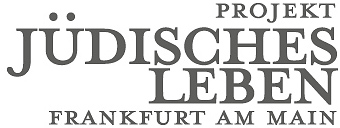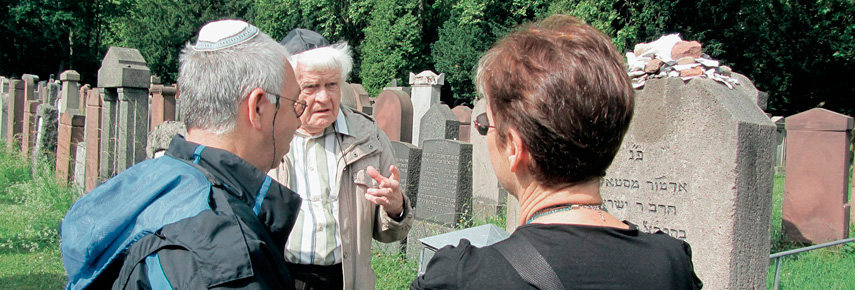The school students asked her how she felt when she came to Frankfurt. Renata Harris made it clear with her answer that only with her latest visit she experienced the feeling that she had come back to her own roots. “Now I can say again that I am from Frankfurt.” She was grateful for the opportunity to tell her story to the class of young people. She felt honoured.
The students and their teacher felt a sense of enrichment meeting Renata Harris. They were most impressed by the openness with which she talked to them. “She was impressive; she spoke in a friendly, warm and cheerful way.” “That made her talk so moving”, said Klaus Hartenfeller, the history teacher after the talk. Many students were impressed by her energy and her positive approach to life in spite of her tragic history.
“Frau Harris is an unusual and remarkable woman. In spite of her experiences and the difficulties with which she had to cope she shared a part of her life with us that she had left deep within herself. It’s amazing that she has come back to Frankfurt in spite of her experiences.” “It must have needed a lot of courage to come back to Germany”, was the response of one of the students.
It was of great significance that she came from Frankfurt, for the students knew many of the places that she talked about. For one listener it was surprisingly new to hear about the experiences from somebody who was born in Frankfurt. “It showed that a ten-year-old child can accept responsibility very quickly when circumstances require”, said one student. Another said that she was impressed by the positive aspects of her experiences, and was surprised that she had been educated in England at the expense of a sponsor unknown to her.
Another student felt annoyed by the letter sent by the Mayoress. “She was forced to leave when she was a child only to be invited as a special guest. I was annoyed because I thought of the pain and shock that Renata Harris had to live through, separated from her family in a strange country. From one day to the next she had no identity, had lost her childhood, had to live with painful memories and experiences. I feel that it must have been extremely difficult for her.”
“Do you plan to come back to Frankfurt?” was another question after her talk. She plans to stay in contact with the town. Many letters and telephone calls have followed with the people that she has got to know on her visits.

